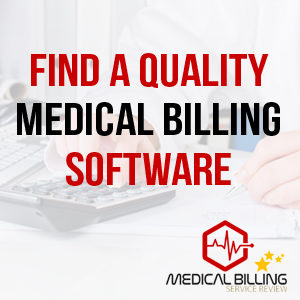
How Do Medical Billing Services Charge Customers?
In the complex landscape of healthcare, medical billing services play a crucial role in ensuring that healthcare providers receive appropriate compensation for their services. They manage invoicing, patient billing, follow up on unpaid claims, and even undertake coding of medical procedures. As such, these services are invaluable to healthcare facilities, but understanding how they charge can be perplexing. This blog post will delve into the intricacies of how medical billing services charge their customers.
GET MEDICAL BILLING SERVICE QUOTESFee Structures of Medical Billing Services
The way medical billing services charge their customers can vary widely, and different services may use different fee structures. Here are some of the most common pricing models used:
Percentage-Based Pricing
In the percentage-based pricing model, the medical billing service charges a percentage of the practice’s gross revenue. This percentage can range from 3% to 10%, depending on various factors, such as the volume of billing, the complexity of claims, and the overall performance of the practice.
This pricing model aligns the interests of the billing service and the healthcare provider, as both parties benefit from maximized collections. However, it may mean higher fees for practices with high billing volumes or expensive procedures.
Flat Fee Pricing
In the flat fee model, the medical billing service charges a fixed amount per claim processed, regardless of the claim’s value. This model can provide more predictability for healthcare providers and does not incentivize billing services to focus on high-value claims. However, it may lead to higher costs for practices with a large number of low-value claims.
Hybrid Pricing
Some billing services use a hybrid pricing model, combining elements of percentage-based and flat fee pricing. For example, they might charge a flat fee for claim processing and a percentage fee for follow-up on unpaid claims. This model allows for some predictability in costs while still aligning the interests of the billing service and the healthcare provider in collecting unpaid claims.

Factors Affecting Costs
Several factors can influence how much a medical billing service charges. These include:
- Volume of Billing: Larger practices with higher billing volumes may be charged lower percentages or flat fees per claim, as the total revenue for the billing service is higher.
- Claim Complexity: Practices in specialties with complex or high-value claims may be charged more, as these claims require more work to code and process.
- Practice Performance: Practices with high denial rates or poor documentation may be charged higher fees, as the billing service has to put in more effort to collect payments.
- Additional Services: Some billing services offer additional services, such as patient scheduling, insurance eligibility verification, and practice management consulting. These services are typically charged separately or may result in higher overall fees.
Understanding how medical billing services charge their customers can help healthcare providers make informed decisions when selecting a billing service. By considering the pricing model and factors that affect costs, providers can choose a service that offers good value and aligns with their practice’s needs and goals. Remember, the cheapest service is not always the best; it’s important to consider the quality of service, experience, and reputation of the billing service as well.
GET MEDICAL BILLING SERVICE QUOTESHow Much Do Medical Billing Services Cost on Average?
The costs of medical billing services can vary significantly based on the pricing model used, the volume and complexity of the claims processed, and the additional services provided. On average, the costs typically fall within these ranges:
- Percentage-Based Pricing: Medical billing services that charge based on a percentage usually take about 3% to 10% of a medical practice’s gross collections. For a medical practice generating $500,000 per month in collections, this would equate to a fee of $15,000 to $50,000 per month.
- Flat Fee Pricing: For services that charge a flat fee per claim, the cost usually ranges from $1 to $10 per claim. For a practice processing 1,000 claims per month, this would equate to a fee of $1,000 to $10,000 per month.
Keep in mind that these are averages and the exact costs can vary based on the factors mentioned earlier.
It’s also important to note that while the cost of a medical billing service can be significant, many medical practices find these services to be cost-effective. Outsourcing the medical billing process to professional medical billers can free up staff time for patient care and other crucial tasks. Medical billing services also bring expertise in dealing with insurance claims and have systems in place to ensure that claims are processed quickly and accurately, leading to faster payments and improved cash flow for the practice.

When considering the cost of a medical billing service, medical practices should also consider the potential revenue gains from improved collections, the time savings for the practice, and the potential for improved patient satisfaction due to more efficient billing processes. In many cases, the benefits of outsourcing medical billing can more than offset the costs.
Types of Medical Billing Services: Unpacking the Suite of Services
Medical billing encompasses a range of tasks and procedures that ensure healthcare providers are accurately reimbursed for their services. Various types of medical billing services cater to different aspects of this complex process, from creating claims to tracking their status, and from patient invoicing to credentialing services. Understanding these services can help medical practices identify what specific tasks they might be outsourcing and consequently, paying for. Let’s dive into the details of these services:
GET MEDICAL BILLING SERVICE QUOTESComprehensive Billing Services
Comprehensive billing services offer end-to-end solutions for medical practices. They handle all aspects of the billing process, from patient registration and insurance verification to coding visits, submitting claims, and managing denials. These services also include patient billing and follow-ups. Given their comprehensive nature, these services are typically the most expensive. However, they can also provide the most value by taking the entire billing process off the practice’s hands.
Claim Creation and Tracking Services
Claim creation and tracking services specialize in the beginning stages of the billing process. They create claims based on the information provided by the healthcare provider, including patient information, insurance details, and the services provided. These services also submit the claims to insurance companies and track them until they are paid. If a claim is denied, they will investigate the reason, correct any errors, and resubmit the claim.
Patient Invoicing and Support Services
Some medical billing services specialize in patient invoicing and support. They generate and send out patient invoices, answer patients’ billing questions, and follow up on unpaid patient bills. These services can be particularly beneficial for practices that have a high volume of patient payments or that want to provide better customer service around billing.
Credentialing Services
Credentialing services handle the process of enrolling healthcare providers with insurance companies so that the provider can receive payments directly from the insurer. Credentialing is a complex process that requires detailed paperwork and follow-up. By outsourcing credentialing to a specialized service, healthcare providers can save time and ensure that the process is handled correctly.

Medical billing services can range from full-service options that handle every aspect of the billing process to specialized services that focus on one part of the process. When choosing a medical billing service, it’s essential for medical practices to consider what specific services they need help with and then find a service that meets those needs. This understanding can lead to more effective cost management and allow the practice to focus more of its time and resources on providing quality patient care.
GET MEDICAL BILLING SERVICE QUOTESComparative Analysis of Medical Billing Services
When choosing a medical billing service, it’s important to perform a comparative analysis to determine which service best meets your specific needs. Each billing service has its own unique strengths and pricing models, so a side-by-side comparison can be invaluable. Here, we’ll break down several aspects to consider: pricing models, services offered, and overall reputation.
Pricing Models
As previously discussed, medical billing services generally use one of three pricing models: percentage-based, flat-fee, or a hybrid model.
- Percentage-based models can be beneficial for smaller practices as the cost fluctuates based on revenue. However, they may end up being costly for practices with high claim values.
- Flat-fee models provide consistency in billing, making it easier for budgeting purposes, although they may not account for the complexity or volume of work a service may undertake.
- Hybrid models are a blend of the previous two, providing a balance of predictable costs with an incentivized structure for maximum collections.
While comparing the pricing models, consider the potential return on investment each model might bring, factoring in the volume and complexity of your claims.
Services Offered
Some billing services offer comprehensive services, including patient registration, insurance verification, claim creation and submission, payment posting, patient invoicing, and more. Others may focus on specific areas, such as claim creation and tracking or patient invoicing.
Consider the needs of your practice when evaluating the services offered. For instance, if your staff already handles certain tasks efficiently, such as patient registration and insurance verification, you might opt for a service that concentrates on claim creation and follow-up.
Reputation
The reputation of a billing service can provide insight into the quality of their services. Look at online reviews and ask for references from other practices. Pay close attention to feedback on the service’s customer support, their effectiveness in maximizing collections, and their adaptability to changes in healthcare regulations.
Selecting the right medical billing service involves carefully comparing the pricing models, services offered, and reputation of different providers. The aim should be to find a reliable service that matches your practice’s needs at a cost that fits within your budget. By investing time in this comparative analysis, you can find a service that enhances your practice’s efficiency, optimizes revenue, and allows your team to focus more on patient care.

The Process of Medical Billing: A Closer Look
The medical billing process is a series of steps that ensure healthcare providers are compensated for their services. It involves several stages, each crucial for a seamless flow from patient care to final payment. Understanding this process can offer healthcare providers a clearer picture of what they’re investing in when they pay for a medical billing service.
GET MEDICAL BILLING SERVICE QUOTESPatient Registration
The medical billing process begins when a patient visits a healthcare provider. During patient registration, the patient’s personal and insurance information is collected. This stage is crucial as it establishes the patient’s record and sets the foundation for the billing process.
Insurance Verification
Once the patient’s information is registered, the insurance verification process starts. In this phase, the medical biller verifies the patient’s insurance coverage details. They confirm the validity of the insurance, the services covered, and any co-payment or deductible amounts. Correctly verifying this information upfront helps prevent claim denials later on.
Medical Coding
After the healthcare provider sees the patient, the services provided need to be translated into standard medical codes. These codes are universally recognized and used to communicate the diagnosis and treatment information to the insurance company. Certified medical coders perform this task, ensuring each service is accurately coded.
Charge Entry
In the charge entry phase, the medical biller assigns a specific cost to each coded service based on the healthcare provider’s fee schedule. These charges are then compiled into a claim.
Claim Submission
The medical biller submits the claim with all the coded services and charges to the insurance company. The claim can be rejected for various reasons, including coding errors, incorrect patient information, or issues with insurance coverage. If rejected, the claim must be corrected and resubmitted.
Payment Posting
Once the insurance company processes the claim, they send an Explanation of Benefits (EOB) detailing the services paid for, the amount paid, and any patient responsibility. The medical billing service then posts these payments to the patient’s account, ensuring the healthcare provider’s records are up-to-date.
Patient Invoicing and Collections
If there is a balance due from the patient, the medical billing service generates and sends an invoice to the patient. They also manage collections for any unpaid patient balances, often involving follow-ups to ensure payment is made.
The medical billing process is an intricate, multi-step procedure. Each stage requires precision, attention to detail, and specialized knowledge. When healthcare providers pay for a medical billing service, they’re investing in expertise that ensures accuracy, timeliness, and maximum revenue collection throughout this entire process.

How to Negotiate Rates with Medical Billing Services: Strategies for the Best Deal
When it comes to hiring a medical billing service, the negotiation process is an essential step. Understanding how to negotiate effectively can help healthcare providers secure the best possible rates, thus saving money and ensuring value for their investment. Here are some strategies and tips to guide medical practices in negotiating rates with medical billing services:
GET MEDICAL BILLING SERVICE QUOTESUnderstand Your Needs
Before starting negotiations, it’s vital to understand your practice’s needs. What tasks do you want to outsource? How complex is your billing process? How many claims do you process monthly? Having a clear understanding of what you need from a billing service will help you negotiate a contract that suits your specific requirements.
Do Your Research
Investigate the average costs of medical billing services and understand the typical pricing models. This information will provide a benchmark to assess whether the rates proposed by the billing service are competitive. Also, research the billing service’s reputation, stability, and track record in the industry.
Highlight Your Value
Remember, negotiation is a two-way street. Just as you’re seeking value for your money, the billing service wants a client who pays on time and is easy to work with. Highlighting your value as a client can strengthen your negotiating position. For instance, if you have a large volume of claims or low denial rates, be sure to mention these points.
Ask for Detailed Proposals
Request a detailed proposal from each prospective billing service. The proposal should break down all costs, including any additional fees for extra services. This transparency will help you understand exactly what you’re paying for and make it easier to compare different services.
Negotiate the Contract Terms
Don’t hesitate to negotiate the contract terms. If there are aspects of the contract you’re not comfortable with, such as the length of the contract, the termination clause, or the pricing model, express your concerns and negotiate a solution that works for both parties.
Seek Legal Advice
Before signing a contract, it’s wise to seek legal advice. A lawyer can review the contract, explain any legal jargon, and ensure the contract protects your interests.
Negotiating rates with a medical billing service requires preparation, research, and open communication. By understanding your needs, knowing the market rates, highlighting your value, and scrutinizing the contract terms, you can negotiate a deal that provides value for money and meets your practice’s needs.

Cost vs. Value in Medical Billing Services: Making the Right Choice
When choosing a medical billing service, it’s crucial to weigh the cost against the value of the service provided. It might be tempting to opt for the least expensive option, but a cheaper service may not always be the best choice. The value that a competent, efficient medical billing service provides could significantly outweigh the potential savings from a lower-cost, but less effective service.
GET MEDICAL BILLING SERVICE QUOTESConsider the following points when evaluating cost versus value:
- Efficient Claim Processing: A service that processes medical claims quickly and accurately can significantly improve a practice’s cash flow. Even if such a service is more costly, the potential for increased revenue and more predictable income can provide considerable value.
- Comprehensive Follow-ups: Unpaid claims can represent a significant loss of revenue for a practice. If a cheaper service doesn’t effectively follow up on unpaid claims, the practice could lose more money than it saves. A service that provides comprehensive follow-ups on unpaid claims may cost more but could also significantly increase revenue.
- Excellent Customer Service: If a problem arises, you want to be sure that your medical billing service will resolve it quickly and efficiently. A service with excellent customer service might cost more, but the peace of mind and potential for fewer problems can be valuable.
- Integration with EMR System: Some billing services provide integration with your practice’s Electronic Medical Record (EMR) system, which can streamline the billing process and reduce errors. While a service that offers this feature may be more expensive, the improved efficiency and accuracy can offer significant value.
- Experience and Expertise: Cheaper service providers might not have the same level of experience or expertise as more costly providers. A company with extensive industry knowledge and a track record of success is likely to provide better results, even if their services are priced higher.
- Adherence to Best Practices: A service that follows industry best practices, such as using the latest coding standards and maintaining strict compliance with healthcare regulations, can help avoid costly penalties and denials.
When choosing a medical billing solution, a small practice should look beyond the price tag. By considering the value that a service provides in terms of efficiency, customer service, and revenue generation, practices can select a service that not only fits their budget but also enhances their bottom line and overall operation. The old adage rings true: “You get what you pay for.” When it comes to medical billing, investing in value can yield significant dividends.
Impact of Regulatory Changes on Medical Billing Costs
Healthcare is a heavily regulated industry, and changes in these regulations can significantly impact the cost of medical billing services. These regulations govern everything from how medical procedures are coded to the privacy of patient information, and compliance is crucial to avoid legal issues and ensure smooth operations.
New Regulations
When new healthcare regulations are implemented, they often require medical billing services to adjust their procedures to ensure compliance. This can include training staff, updating software systems, or implementing new protocols. These adjustments can require a significant investment of time and resources, which may result in increased costs for the medical billing service – costs which may be passed on to the healthcare provider.
For example, the transition from the ICD-9 to the ICD-10 coding system that took place a few years ago required substantial updates to medical billing systems. Medical billers had to undergo extensive training to understand the new coding system, and software systems had to be updated to accommodate the new codes. The cost of these changes was substantial and likely impacted the fees charged by many medical billing services.

Coding Updates
Even without major regulatory changes, the medical billing industry regularly sees updates to medical coding. These updates can include new codes for new procedures, changes to existing codes, or the removal of outdated codes. Each update requires medical billers to stay current on the changes, which can involve training and updates to coding software. As with major regulatory changes, these updates can increase the cost of medical billing services.
Mitigating Costs
While regulatory changes can increase the cost of medical billing services, there are ways to mitigate these costs. One key approach is to choose a medical billing service that demonstrates a proactive approach to regulatory changes. These services invest in ongoing training and software updates as a part of their regular operations, reducing the impact of regulatory changes on their costs.
GET MEDICAL BILLING SERVICE QUOTESAnother approach is to negotiate the terms of your contract with the billing service. Some contracts may allow the billing service to pass on the costs of regulatory changes to the healthcare provider, while others may not. It’s important to understand the terms of your contract and negotiate them if necessary.
While regulatory changes can impact the cost of medical billing services, understanding these changes and choosing a proactive billing service can help mitigate these costs. By staying informed and choosing a service that invests in keeping up with the ever-evolving healthcare regulations, healthcare providers can manage their medical billing costs effectively.
Leveraging RCM Services and Choosing Among Top Medical Billing Companies
In recent years, more healthcare providers have turned to Revenue Cycle Management (RCM) services to streamline their financial processes, which include billing. Top medical billing companies often provide comprehensive RCM services, combining medical coding, billing, collections, and even denials management into one cohesive package.
RCM Services
RCM services are holistic solutions aimed at managing all administrative and clinical functions associated with a healthcare provider’s revenue cycle. They cover the entire patient care journey, from scheduling an initial appointment to collecting the final payment. By outsourcing RCM, healthcare providers can focus more on patient care while ensuring their financial operations are handled efficiently.
Top Medical Billing Companies
When it comes to selecting a medical billing service provider, consider those with years of experience and a proven track record of success. These companies are often adept at navigating the complexities of the healthcare billing landscape and are well-equipped to handle any challenges that may arise. They keep up with regulatory changes, adopt best practices in billing, and leverage technology to deliver efficient and accurate services.

Here are some top medical billing companies known for their quality RCM services:
- Kareo: Kareo is a cloud-based medical billing and EHR solution designed for small to mid-sized practices. They offer a comprehensive suite of RCM services, including patient registration, insurance verification, billing, and collections.
- athenahealth: Recognized for its strong emphasis on cloud-based healthcare IT, athenahealth offers RCM services that improve practice efficiency. Their services include patient scheduling, billing, reporting, and full-service revenue cycle management.
- eClinicalWorks: eClinicalWorks provides a fully integrated suite of software solutions, including medical billing and RCM. They handle everything from coding and billing to denial management and insurance follow-ups.
When choosing a medical billing company, it’s crucial to consider your specific billing needs. Are you looking for end-to-end RCM services, or do you need help with a specific aspect of billing? Do you prefer a company with expertise in your specialty? These considerations can guide you toward the right service provider.
Many of these companies offer free consultations. Utilize this opportunity to ask questions, understand their services better, and assess whether their solutions align with your needs. By carefully assessing your options and making an informed decision, you can partner with a medical billing service that adds value to your practice, improves your revenue cycle efficiency, and allows you to focus on delivering high-quality patient care.
GET MEDICAL BILLING SERVICE QUOTESAuthor: Mike Cynar
Mike Cynar brings buyers and sellers together by producing reviews and creating non biased webpages allowing users to share their experiences on various products and services. He and his staff write informative articles related to the medical field, legal, and other small business industries.
Leave a Reply